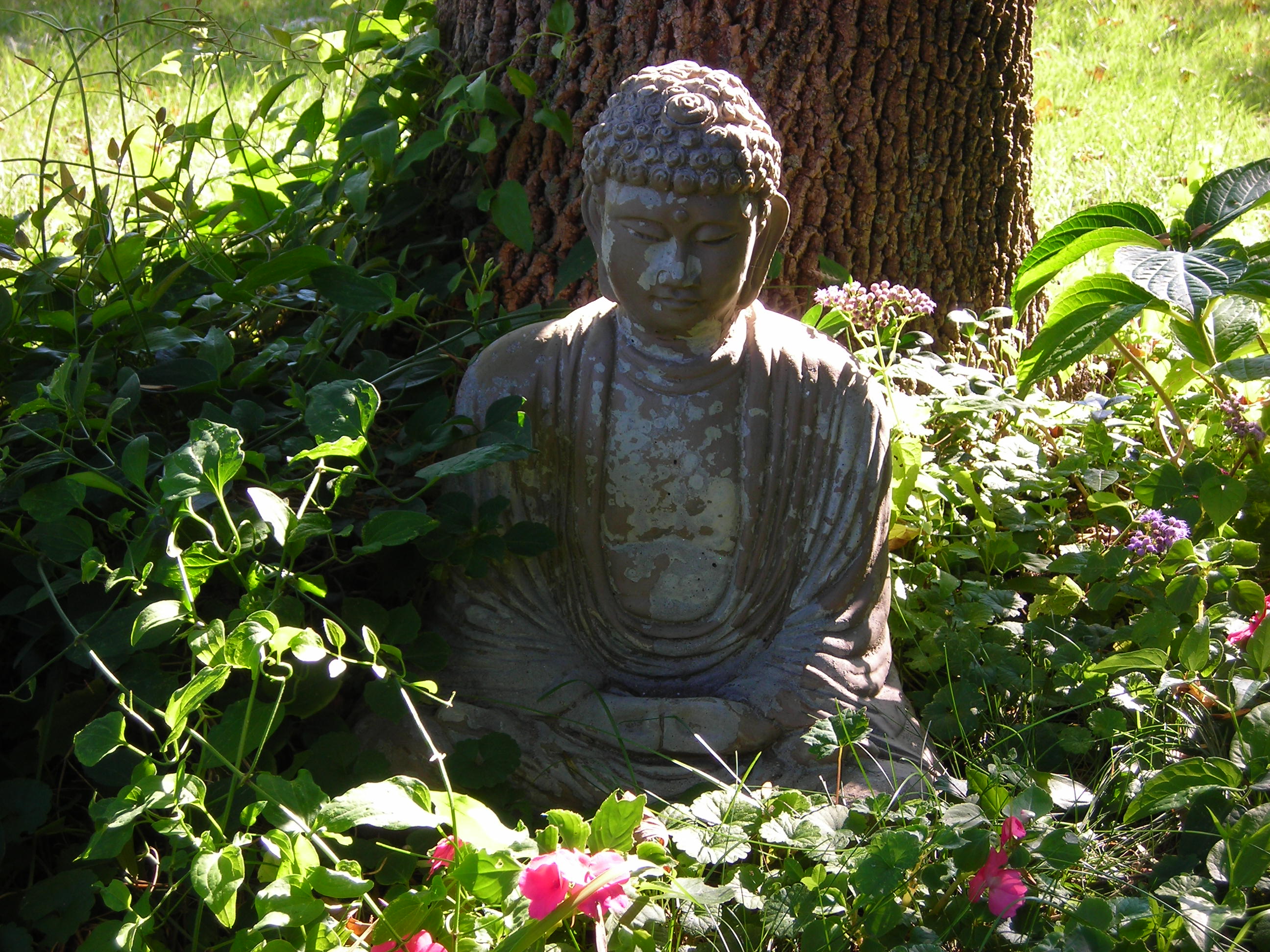Good morning!
It is a beautiful autumn Sunday morning with sittings and service, the sounds of
birds flapping and flying. It is the best season, just after equinox with equal day
and night, a cool and clear atmosphere.
Yesterday I posted Dogen’s poem on one mind treading on the Six Paths or
transmigrating through them –hell beings path/way/passage/destiny/career,
etc. at our website:
1. Hell being path/destiny (niraya-gati)
2. Beastly being path/destiny (tiracchānayoni-gati)
3. Ghostly being path/destiny (pittivisaya-gati)
4. Devilish being path/destiny (asura-gati)
5. Human being path/destiny (manussa-gati)
6. Celestial being path/destiny (deva-gati)
Because of our karmas, we appropriate and identify the body as “I” and act as (if)
“an independent, eternal being.” This is the common convention, to get into self-
centeredness and self-assertion, creating the triple poisons.
This is the fundamental delusion or nescience (non-witness of nirvana/bodhi,
unconditioned peace/unsurpassed awakening), evolved by karmas (actions,
habits, heredity, etc., even called the selfish gene) for desire/divisiveness.
The triple poisons lead to the Six Paths with limitless varieties, which is called
samsara, and involves suffering due to impermanence (no self-same) and
dissatisfaction (no self-sovereign) of dependently originated phenomena.
This has been the case for all beings in all places and at all times, because they are
karma heirs, karma relatives, karma machines, in short, karma slaves, not knowing
how and thus not acting to put an end to such state.
The Buddha could know and act the right way to solve such a slave state in samsara
suffering for the first time in the history of living beings. He sat, stopped karmas,
saw the dharma of dependent origination and solved suchness.
He solved the problem of nature and nurture, which Dr. Suzuki called the law of
heredity and the law of ability, from the very root of life with body, mind, and the
world in the dharma of dependent origination.
Karma had been long considered to be destiny, but it became changeable by
decreasing, stopping bad actions, starting, and increasing good ones (four
applications), which is the essence of religion – cultivation and verification.
Gati also means the condition/state/sphere/realm as gata (gone/reached, etc.)
As “mango being in the hand” (hasta-gata āmra) Tathā-gata is not Thus-
gone or Thus-come, but Thus-being (being in Thusness, Truth).
Gati also means “being in the condition/state,” not necessarily a future destiny, but
present condition/state. Samsara simply means “full flow,” not reincarnation, but a
constant change from moment to moment.
Our existential condition is complete constant change in the dynamic interdependent
co-origination of all phenomena. So is our life state and sphere, complete change
in the seeming continuity of abstraction.
Our body-mind-world systems are in constant change and impermanence,
nothing remains the same except for our conceptions, ideas, names, etc.,
which are only human convention and conventional truth (loka-sacca).
The Buddha could understand and act in the paramount truth
(parama-attha/artha sacca/satya) or supramundane truth
(uttara-loka sacca/satya) directly witnessing and holding truth/suchness.
Now, anyone can practice and penetrate the “come and see” (ehi-passika)
truth and peace, prognosticate unconditioned peace and unsurpassed
awakening, and pertain to amrita (ambrosia, immortality).
9/29/13
Note:
1. Tathā-gata is usually translated as 如来 (Thus-come) and occasionally
如去 (Thus-gone), but the Buddha and buddhas are 如存 (Thus-being:
being in Thusness, Truth), as they are in Truth (真如、如真) and stay in it
“neither coming nor going.”
2. As our six sense worlds originating depending on six sense organs and objects
are inseparable from the mind, the mind and its worlds are essentially one.
Our mental worlds are appearing and disappearing from moment to moment
and constantly changing in the systemic dynamism (no self-sameness and no
self-sovereignty, thus no self-substance or independent eternal entity: no self).

